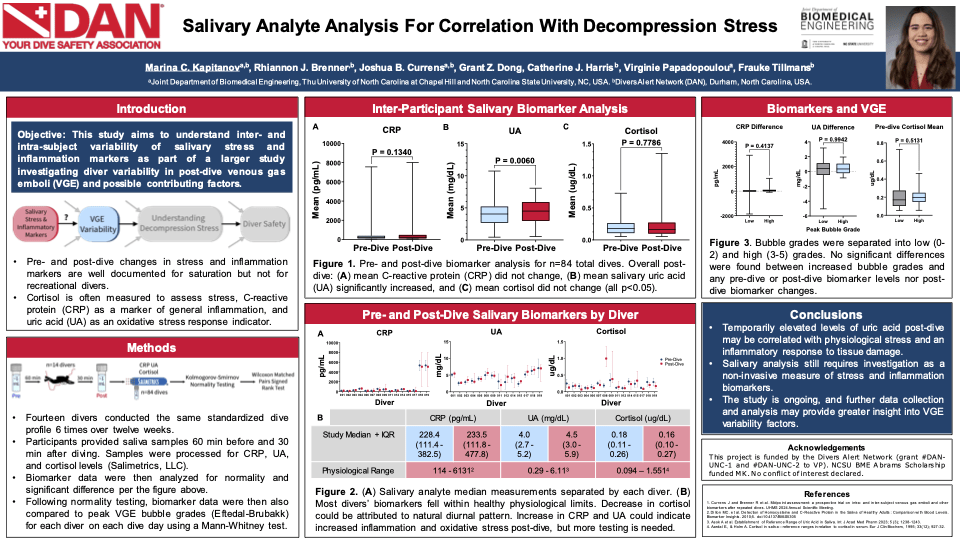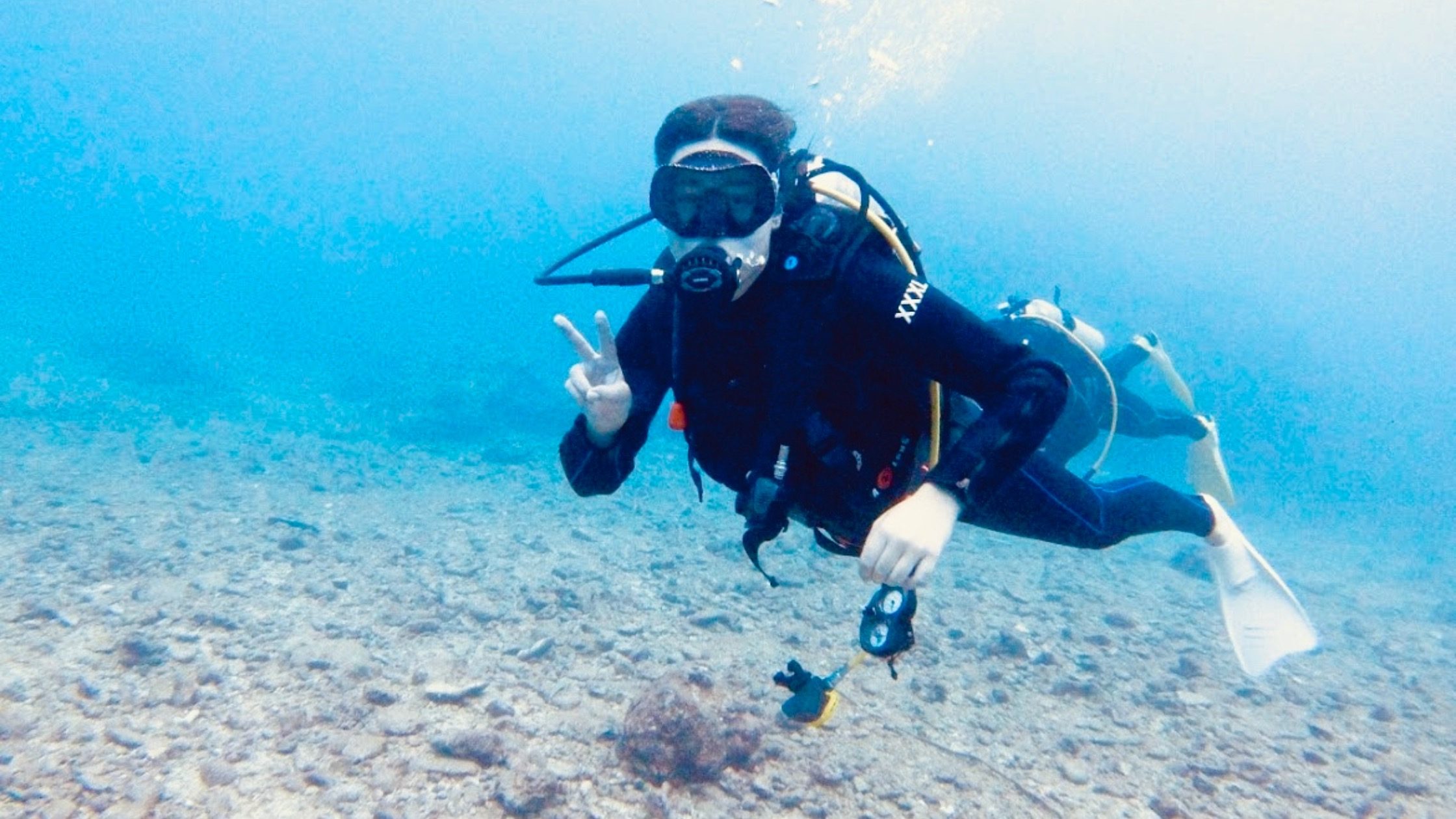DAN is committed to enhancing dive safety and our collective understanding of human physiology in the underwater world. Looking toward the future, DAN proudly supports the next generation of dive researchers. By offering mentorship for young scholars, DAN Research creates opportunities for students to gain experience in this specialized field and present projects at academic conferences and in journal publications.
The Joint Department of Biomedical Engineering (BME), a partnership between the University of North Carolina at Chapel Hill (UNC-Chapel Hill) and North Carolina State University (NCSU), facilitates research fellowships for students through its Abrams Scholars Program. Marina Kapitanov, a NCSU undergraduate and recent Abrams Scholar, contributed to dive research with guidance from Frauke Tillmans, Ph.D., Research Director at DAN, the project’s principal investigator (PI).
In her reflection below, Marina shares her experiences as a student scholar working with DAN Research.
DAN in Japan: Dive Research as an Abrams Scholar Abroad
By Marina Kapitanov, May 2024
Project: Salivary Analytes Analysis for Correlation with Decompression Stress
PI: Dr. Frauke Tillmans (Divers Alert Network)
When I saw DAN on the Abrams Scholarship Program’s application list in 2023, my curiosity led me to reach out. During my first conversation with Dr. Tillmans and the DAN Research team, I realized I had found the perfect opportunity.
Since starting my studies at NCSU, I have always wanted to engage in human-subject research. I studied the physical and chemical systems of the body and conducted various research projects, primarily on the cellular or animal level. These experiences honed my technical skills and helped me earn my first and second Abrams Scholarships. Working with DAN presented new opportunities and applications for my biomedical engineering background and aligned with my dream of finding an international and interdisciplinary path.
The DAN Research team, which consists of people from various scientific and cultural backgrounds, is deeply passionate about their work. As a newcomer to the field and to diving in general, I was warmly welcomed — and I soon learned that friendliness is a common trait among divers. The DAN Research team advocates for knowledge exchange, especially through collaborative projects with universities and research entities like UNC-Chapel Hill’s Dayton Lab. Compared to my past lab experience, where most members were from the same or very similar fields, I was pleasantly surprised by the DAN team’s diversity of expertise. The group included geneticists, marine biologists, anthropologists, and neuroscientists, among others. I was determined to adapt and learn quickly to bridge my knowledge gap in this exciting and almost entirely new field.
Over the past year and a half, my decision to reach out to DAN has opened so many doors. In the summer of 2023, I earned an enrichment grant from NCSU’s Park Scholarships program to earn my open water scuba diving certification. The course furthered my understanding of our research and enabled me to dive with members of the team, who shared their knowledge of how to be a better, safer diver. Later that summer, I was fortunate to receive NCSU Engineer Your Experience funding to present my project, Salivary Analyte Analysis for Correlation with Decompression Stress, at the Undersea and Hyperbaric Medicine Society’s Annual Scientific Meeting in San Diego, California.

While working with DAN Research to create the poster and prepare for the presentation, I learned more about sharing results, especially at my first conference outside of a university setting. At DAN, I attended a research workshop on the fundamentals of field measurements including anthropometrics and cardiac ultrasounds. I also learned about the history of dive medicine, including research conducted at UNC-Chapel Hill and Duke University. Additionally, I received my Diving First Aid for Professional Divers certification. Most importantly, working with DAN introduced me to data collection in the field and improved my understanding and application of statistical analysis. I have thoroughly enjoyed learning everything I can to improve dive safety for the volunteers I interact with directly in the field.
With support from the Abrams Scholarship, I have continued my research while studying abroad at Nagoya University in Japan. During the yearlong Nagoya University Program for Academic Exchange, I am taking classes and developing my own research project, which measures hyperbaric effects on cells at a biomechanics lab. Japan’s culture of sea exploration and education have further inspired me to pursue an international career in dive medicine and physiology. To work toward this goal, I earned a scholarship from the NC Japan Center Harry C. Kelly Memorial Fund this semester, which aims to strengthen ties in science and technology between the United States and Japan.

I am grateful to the Abrams Scholarship Program for providing me the opportunity to develop a project alongside the leading dive safety organization. I am even more thankful to DAN for enabling me to continue my research while studying in Japan. I look forward to exploring the depths of the field of dive research in the future.
Original reflection edited for length.